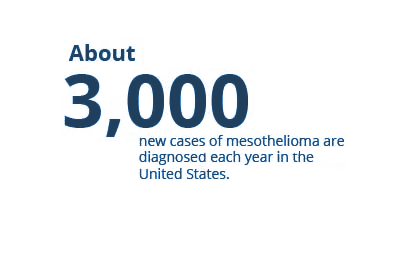Veterans & Mesothelioma
Veterans who are diagnosed with mesothelioma as a result of active military service are entitled to benefits from the federal government.
They also may be entitled to additional compensation from the companies that sold dangerous asbestos products to the military.
Get Your Free Mesothelioma Guide
- Asbestos in the Military
- Military Branches
- Navy Veterans
- VA Disability Benefits
- VA Claims Process
- Treatment for Veterans
Asbestos in the Military
Did you know that veterans have a higher incidence of mesothelioma and other asbestos-related diseases than the general population?
In fact, veterans make up approximately 30 percent of ALL U.S. cases of mesothelioma.
Insider Info
-
The military made widespread use of asbestos from the 1930s to the 1990s.
-
Asbestos was used in everything from shipbuilding to the construction of barracks.
-
Each branch of the military used asbestos.
-
Every naval ship constructed in this time period contained asbestos.
-
The companies that manufactured and sold asbestos products to the military knew of the dangers but failed to warn service members.
-
Decades later, thousands of veterans have been diagnosed with debilitating and life-threatening asbestos diseases.
Veteran Resources
Asbestos Exposure in All Branches of the Military
Asbestos was widely used in ships and shipyards, aircraft and hangars, military buildings, and a variety of military equipment and vehicles.
The Department of Veterans Affairs has warned that anyone who served in the military could have been exposed to asbestos.
Although the U.S. military has now taken precautions to protect personnel, those who serve overseas continue to risk exposure when old buildings are damaged or destroyed, releasing asbestos dust into the air.

Navy
Because of the extensive use of asbestos on ships and in shipyards, Navy veterans were the highest risk for exposure, particularly those who worked at shipbuilding facilities or in engine and boiler rooms.
Sailors frequently worked in tight quarters on ships, where they would unknowingly inhale microscopic asbestos fibers.
The Navy stopped using asbestos materials in the mid-1990s, but for many service members, the damage had already been done.

Air Force
Up until the 1980s, the U.S. Air Force used asbestos-containing components in planes, jets, helicopters, vehicles, and buildings.
Aircraft mechanics and other personnel assigned to work in aircraft hangars, airfields, or in other buildings containing asbestos may have been exposed to the deadly carcinogen.

Coast Guard
Although it’s not as large as the Navy, this branch of the military shares similar duties.
Like veterans of the Navy, veterans of the Coast Guard were also likely exposed to asbestos while serving on ships and in shipyards.
In addition, even today, the Coast Guard has warned that asbestos materials remain on cutters.

Army
The U.S. Army began its Installation Asbestos Management Program in the late 1990s to warn soldiers who might have been at risk of exposure and to implement asbestos abatement procedures.
At that time, the Army warned that asbestos materials had been used in a wide range of building materials and equipment.
Any soldiers who handled or worked in the vicinity of asbestos-containing materials may have been exposed.
In particular, those who were assigned to work on vehicles could have been exposed through asbestos-containing brakes and clutches.

Marines
Because Marines worked on ships, with aircraft, and on land, service members risked exposure to asbestos on multiple fronts.
Much like Navy and Air Force personnel, Marines may have inhaled asbestos fibers while working on ships or aircraft. Marine Corps facilities on land also contained asbestos materials, which means anyone who worked to repair or maintain these buildings could have been exposed.
Occupations with High Risk of Exposure to Asbestos
Veterans who served in any of the following occupations faced the highest risk of exposure to asbestos:
-
Boatswain’s mate
-
Boilerman, boiler tender, boilermaker, and water tender
-
Carpenter
-
Damage controlman
-
Electrician and electrician’s mate
-
Fireman
-
Gunner’s mate
-
Hull maintenance technician
-
Instrumentman
-
Machinist’s mate
-
Mechanic
-
Painter
-
Pipefitter
-
Shipfitter
-
Sonarman and sonar technician
-
Soundman
-
Steamfitter
-
Utilitiesman
Warning
It is important to note that veterans who served in high-risk occupations are not the only ones who have been diagnosed with asbestos diseases.
There is no safe level of asbestos exposure. Even those who did not work directly with asbestos-containing materials may have unknowingly inhaled the dust in their work environment.
U.S. Navy Veterans Face Highest Risk for Asbestos Disease
Because Navy veterans faced the highest risk of asbestos exposure, they are more often diagnosed with asbestos diseases such as mesothelioma, lung cancer, and asbestosis.
Navy veterans who worked at shipbuilding facilities and in engine and boiler rooms are most at risk.
However, because airborne asbestos fibers can easily travel in close quarters, anyone who worked on a Navy ship or in a shipyard may be at risk for developing asbestos disease.

Asbestos Exposure:
Navy Ships & Shipyards
Asbestos materials were common components in Navy ship equipment such as boilers, turbines, pumps, valves, and electrical equipment.
Those who served on any of the following types of ships and watercraft may have been exposed:
Secondhand Asbestos Exposure in Military Dependents
In addition to veterans who served on ships, those who worked in shipyards may have been exposed to asbestos while building, maintaining, or repairing vessels.
Civilian Navy shipyard workers, sometimes called yardbirds, also were at high risk of exposure.
Asbestos exposure in the military was not limited to service members who worked with or in the vicinity of the dangerous material.
Asbestos dust and fibers were often transferred home on uniforms and clothing, putting military spouses and children at risk of exposure as well.

VA Disability Benefits for Asbestos Diseases
Veterans with service-connected mesothelioma, asbestos-related lung cancer, asbestosis, and other asbestos illnesses can receive monthly disability compensation from the Department of Veterans Affairs (VA).
Depending on your circumstances, the VA offers a few types of benefits that you may qualify for:
VA Health Care
VA Health Care, for which eligibility is determined by service-related disabilities, income level, and various other circumstances.
Disability Compensation
Disability Compensation, which is paid monthly and is based on your level of disability rating. Veterans are usually given the 100 percent VA disability rating for mesothelioma.
If eligible, single veterans can get about $3,000 in monthly benefits. Married veterans could collect more.
Special Monthly Compensation (SMC)
Special Monthly Compensation (SMC), which may be available to veterans who require the aid and attendance of a caregiver. (Family members such as spouses of veterans may also qualify to receive this benefit.)
Dependency & Indemnity Compensation (DIC)
Dependency and Indemnity Compensation (DIC), which is paid monthly to surviving spouses and dependents of veterans who have died from service-related disabilities.
Coping with Mesothelioma & Finding Support
Learning you or a loved one has mesothelioma can be extremely difficult to come to terms with.
VA Claims Process
-
To qualify for VA benefits, a veteran must have been honorably discharged from the service and developed mesothelioma or another asbestos disease from his or her time on active duty.
-
To obtain benefits, a veteran must file the required VA form, along with supporting medical records, including a physician’s diagnosis of mesothelioma.
Because it can be complicated to complete the form and gather needed records to prove mesothelioma was caused by asbestos exposure during active service, consulting with an attorney experienced in pursuing mesothelioma disability claims is extremely helpful.
-
After reviewing a patient’s complete record, the VA will make its benefits decision. The crucial factor is demonstrating to the VA that the asbestos exposure was primarily, if not exclusively, related to active military service.
-
The VA will assess the level of asbestos exposure during a veteran’s military service compared to any exposure during civilian occupations.
Once the VA determines a veteran is eligible for disability benefits, it then assesses the degree of disability on a scale starting at 10 percent. The VA typically gives 100 percent disability ratings to veterans with service-related mesothelioma.
Help with VA Claims and Other Benefits for Veterans
If you or a loved one was exposed to asbestos in the military and has been diagnosed with mesothelioma, contact us now for a free consultation with a VA-accredited claims representative. Our team can help you prepare the documentation needed and submit your application for VA benefits so you have the best chance of getting help from a top VA treatment center for mesothelioma.
In addition to VA benefits, veterans who have been diagnosed with an asbestos disease should learn about their rights to compensation from the manufacturers and suppliers that provided asbestos to the military. These companies knew about the dangers of airborne asbestos fibers, but they kept that information hidden for years.
A claim against asbestos manufacturers, suppliers, and any other responsible parties would not involve suing any branch of the military, nor would it impact your ability to get veteran’s benefits. Our team can advise you on your legal right to compensation and handle all the necessary paperwork to pursue such a claim.
Treatment for Veterans with Mesothelioma
The U.S. Department of Veterans Affairs acknowledges that countless veterans were exposed to asbestos during their time in the service, so it has established medical centers that specialize in treating veterans with mesothelioma. Veterans with mesothelioma may need surgery, chemotherapy, radiation, or a combination of treatments.
Your local VA medical center can help you and your family make arrangements and cover the costs of travel, treatment, and housing at a mesothelioma center. The VA also offers TeleHealth programs, which make it possible for veterans to see top mesothelioma doctors from across the country without having to travel.
Many veterans may weigh the option of using private health insurance vs. getting VA benefits. However, using VA benefits for mesothelioma treatment provides some advantages, such as:
-
Priority care
The VA ranks veterans based on eight priority groups. Veterans with service-connected mesothelioma fall into the Priority Group 1, meaning they are 50 percent or more disabled and unemployable due to their condition. This ranking allows veterans with mesothelioma to receive more time-sensitive, priority care through the VA system.
-
Cost of treatment
Mesothelioma patients may need expensive surgery, chemotherapy, radiation, and ongoing palliative care. This can be financially draining on a family. However, veterans may receive more affordable treatment and care through the VA system vs. private health care providers.
-
Transportation and lodging during treatment
The VA has a Veterans Transportation Service and a Beneficiary Travel program that offer free transportation to medical appointments. If a veteran receives a referral to a VA mesothelioma treatment center, the VA will help coordinate travel and lodging, including for a loved one to go with the patient.
To find a treatment center near you, search the VA health facility database.
Clinical Trials for Veterans
Although there is no cure yet for mesothelioma, doctors and researchers across the United States and around the world are always testing new treatments in hopes of finding one. Veterans who have been diagnosed with mesothelioma may want to consider exploring alternative treatment options available through clinical trials.
Mesothelioma clinical trials can explore a wide range of treatment options, including:
-
Testing new medications or devices
-
Trying new procedures
-
Experimenting with changes to behavior or diet
In most cases, mesothelioma patients do not have to pay to participate in clinical trials. The organization that is sponsoring the trial pays for the experimental treatment.
If you or a loved one is considering a mesothelioma clinical trial, talk to your doctor about the potential risks and rewards.














